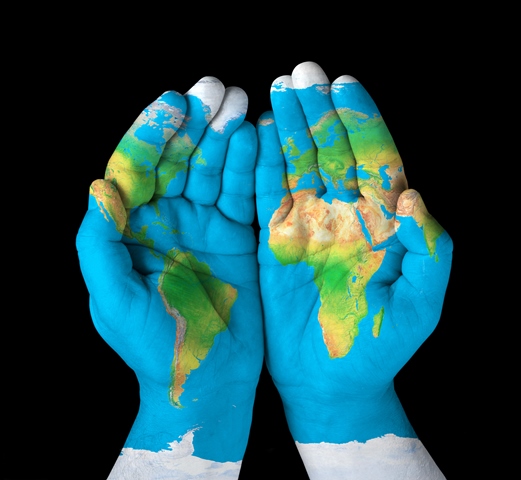ENVIRONMENT

Globally 300 million tonnes of plastic are produced each year and less than 10% of the total quantity is adequately recycled. A large chunk of the plastic produced finds its way into the oceans and water bodies causing immense damage to multiple natural resources. Plastics are causing a damage that is irreversible and devastating to life on our planet. We however continue to witness the global investment in plastic production growing by multiple times, amidst this situation how should we strike the sustainable balance?
Mark Johnson is currently working as a freelance journalist – based in Pune.
Man has always had a two dimensional relationship with nature and this has caused immense conflict and contradiction in terms of priorities and preferences. On the one hand we can see throughout the religious philosophies and spiritual traditions of the world a sense of immense gratitude and reverence towards the natural world and often we also discover the great importance that has been attached to nature as a benevolent giver, the ultimate nurturer and caretaker and also the mighty keeper of human conscience. On the other we discover how the very rationalistic, technocratic and develop-mentalist mind of man has pulled him away from his reverential bond with nature and made him see nature as merely an obstacle or a pool of resources to be unconditionally exploited.
This version of an orientation towards nature has been especially characterized by the growth of technology, urbanism, capitalistic enterprise and an unprecedented urge to integrate the world in a market based economic enterprise. We see the manifestation of this attitude in all the major economies of the world and generally in the way contemporary nation-states orient themselves to both civil and international issues. It is an irony that today we are unable to strike a balance between nature and our own human needs. We are exceedingly exploiting nature without a concern for sustainability or even a moment of contemplative engagement about how long we will be able to live on earth if we so restlessly exploit its resources.

This means that given the nature of our engagement with nature it will be very difficult for us to keep our planet healthy in the long run. The alarming concerns of global warming, increase in continental temperatures, the rapid extinction of flora and fauna, the onset of floods and droughts in unnatural circumstances, rapid deforestation and mining are among the multiple sources of crisis that engulf us from all sides today. While it is not in the scope of this article to discuss in detail each of the issues we are today facing nevertheless it would be important for us to now talk about the growing destruction that manmade substances such as plastics are bring forth onto the earth. 300 million tonnes of plastic are produced globally each year and only about 10% of the total is able to get recycled.
Out of the entire amount of plastic that is simply thrashed nearly seven million tonnes ends up being disposed in the sea.Plastic pollution is a major global phenomenon that has come up at a grand scale over the last few decades, and it really requires a global and comprehensive solution that includes systemic rethinking about its usage It is alarming to make note of the fact that more than 480bn plastic drinking bottles were sold in 2016 around the world, up from about 300bn a decade ago. If we placed all the plastic bottles in the world end to end, they would fill the path half way to the sun. It is interesting to note that plastic bottles that are used for soft drinks and water are produced from polyethylene terephthalate a subject which is highly recyclable. But as the use of such plastic multiplies across the globe, efforts to collect and recycle the bottles to keep them from polluting the oceans are continuing to be inadequate.
This is at this time that we must also realize the fact that plastic bottles are all around us today and from soft drinks to oils and packaged water we see its proliferation everywhere. This is just a tiny amount of the total plastic produced globally. The statistics reveal that we have done unprecedented damage to the planet already by the use of unmanaged plastic and this is going to multiply several more times with more high end investments taking place in the field of plastic production. Until and unless we look for viable alternatives and ban the use of plastic altogether, our future looks immensely bleak. Millions of tons of plastic that are ending up in the oceans are a global threat that we cannot delay to address. We have no alternative left but to revive pour spiritual and reverential bond with nature. We have to relate to it, listen to its innermost voices, explore it and be grateful to it for all that it offers we cannot go on exploiting it without a moment of concern. We have to spend a moment of contemplative reflection.
The New Leam has no external source of funding. For retaining its uniqueness, its high quality, its distinctive philosophy we wish to reduce the degree of dependence on corporate funding. We believe that if individuals like you come forward and SUPPORT THIS ENDEAVOR can make the magazine self-reliant in a very innovative way.












